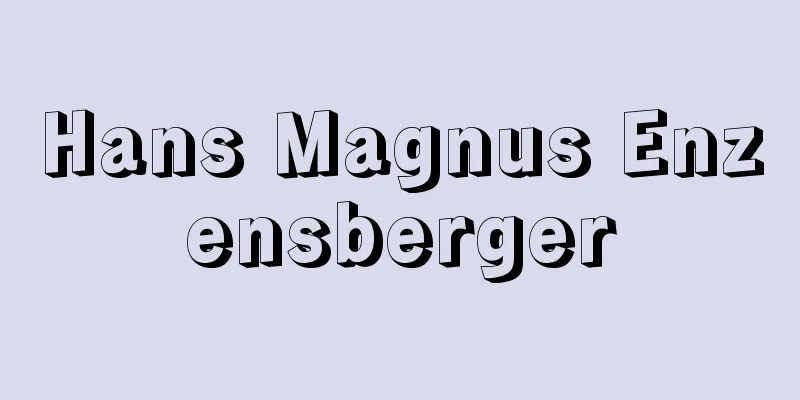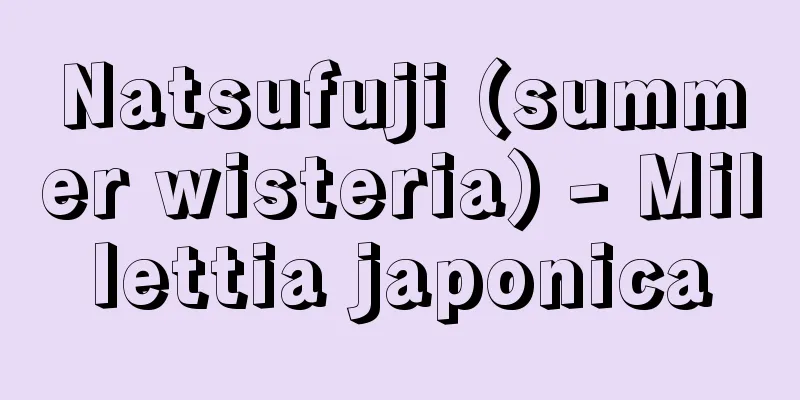Hans Magnus Enzensberger

|
German poet and critic. Born in Bavaria. At the end of World War II, he was a boy soldier in the Volkssturm Guard and suffered defeat. He majored in literature at university while earning a living as an interpreter. For his graduation thesis, he wrote about Brentano's poetic style. With several collections of poems, such as "A Defense of the Wolves" (1957) and "Words of the Country" (1960), he started out as a poet with a sharp sense of language and strong political criticism, but at the same time he also published sharp social criticism. His works, such as "Details" (1962) and "Politics and Crime" (1964), are collections of criticism that were born from his sensibility as a poet and his sensitive reaction against the injustices of modern society. Since the late 1960s, he has been regarded as a typical example of a new type of so-called New Left radical intellectual who broke away from the stereotypes of the established left. Particularly well-known in Japan is "Consciousness Industry Theory" (1962), a sharp essay with a self-critical analysis of the modern intellectual industry as a whole, whose essence is the "exploitation of consciousness." In 1963, he received the Büchner Prize and many other literary awards. In 1965, he founded and edited the magazine "Timetable," in which he himself wrote prolifically about current issues. During this time, he visited Cuba and other parts of the world, and came to Japan in 1973 (Showa 48). During this period, he also wrote documentary works such as "The Havana Inquisition" (1970) and "Spain's Short Summer" (1972). His works from the late 1970s onwards, such as the collection of ballads "Mausoleum" (1975), whose basic theme is reflection on the problems inherent in "progress" over the past 600 years, the long poem "The Sinking of the Titanic" (1978), and the play "L'homme le mischief" (1984), which uses Diderot as the protagonist and depicts the problems of the existence of intellectuals in the form of a comedy, tend to lack the sharp social criticism of his early works, but his innovative vision and writing talent remain intact. Other works include the long reportage "Ah, Europe!" (1987, translated into Japanese as "Europe Peninsula"). In 1985 he was awarded the Heinrich Böll Prize. [Junzo Aoki] "Politics and Crime" translated by Nomura Osamu (1966, Shobunsha) ▽ "The Consciousness Industry" translated by Ishiguro Hideo (1970, Shobunsha) ▽ "Spain's Short Summer" translated by Nomura Osamu (1977, Shobunsha) ▽ "The Mausoleum: 37 Ballads from the History of Progress" translated by Nomura Osamu (1983, Shobunsha) ▽ "The Sinking of the Titanic" translated by Nomura Osamu (1983, Shobunsha) ▽ "The Lover of Man: Conversations on Diderot" translated by Nomura Osamu (1987, Shobunsha) ▽ "The European Peninsula" translated by Ishiguro Hideo, Kodera Shojiro, et al. (1989, Shobunsha) ▽ "From the Cold War to the Civil War" translated by Nomura Osamu (1994, Shobunsha) ▽ "The Devil of Numbers: 12 Nights to Make Arithmetic and Mathematics Fun" translated by Okazawa Shizuka, et al. (1998, Shobunsha) "The Devil of Love" (translated by Misa Kawanishi, 2001, Shobunsha) " "Robert is the Angel of History" (translated by Shizuya Okazawa, 2001, Shobunsha)" [References] | |Source: Shogakukan Encyclopedia Nipponica About Encyclopedia Nipponica Information | Legend |
|
ドイツの詩人、評論家。バイエルンの生まれ。第二次世界大戦末、民族突撃隊の少年兵として敗戦を迎え、通訳などで生計をたてながら大学では文学を専攻。卒論ではブレンターノの詩法を論じた。『狼(おおかみ)たちの擁護』(1957)、『くにのことば』(1960)など数冊の詩集により、強烈な政治的批判を内に秘めた鋭い言語感覚の詩人として出発したが、同時に犀利(さいり)な社会批判的評論も発表した。『細目』(1962)、『政治と犯罪』(1964)など、いずれも詩人としての感性が現代社会の不正に敏感に反発するところに生じた評論集といってよく、1960年代末以降、既成左翼の固定観念を脱した新しいタイプの、いわゆる新左翼系急進的知識人の典型と目されるに至る。日本ではとくに著名な『意識産業論』(1962)は、「意識の搾取」を本質とする現代の知的産業全般を、自己批判を込めて論じたエッセイとして鋭い。1963年のビュヒナー賞ほか数多くの文学賞を受賞。1965年以降、雑誌『時刻表』を創刊編集。自らも誌上で時局的諸問題について健筆を振るう。この間キューバなど世界各地を訪れ、1973年(昭和48)には来日した。この時期『ハバナの審問』(1970)、『スペインの短い夏』(1972)など、ドキュメンタルな作品もある。過去600年にわたる「進歩」が含む問題への反省を基本的主題に据えたバラード集『霊廟(れいびょう)』(1975)や、長編詩『タイタニック沈没』(1978)、ディドロを主人公にして知識人という存在の問題性を喜劇の形式で描いた戯曲『人間好き』(1984)など、1970年代後半以降の作品では初期の評論のような社会批判的舌鋒(ぜっぽう)の鋭さは薄れたきらいはあるが、斬新(ざんしん)な視覚と才筆ぶりは依然として健在である。ほかに長編ルポルタージュ『ああ、ヨーロッパ!』(1987。邦訳『ヨーロッパ半島』)など。1985年にはハインリヒ・ベル賞を受賞した。 [青木順三] 『野村修訳『政治と犯罪』(1966・晶文社)』▽『石黒英男訳『意識産業』(1970・晶文社)』▽『野村修訳『スペインの短い夏』(1977・晶文社)』▽『野村修訳『霊廟――進歩の歴史からの37篇のバラード』(1983・晶文社)』▽『野村修訳『タイタニック沈没』(1983・晶文社)』▽『野村修訳『人間好き――ディドロについての対話』(1987・晶文社)』▽『石黒英男・小寺昭次郎他訳『ヨーロッパ半島』(1989・晶文社)』▽『野村修訳『冷戦から内戦へ』(1994・晶文社)』▽『丘沢静他訳『数の悪魔――算数・数学が楽しくなる12夜』(1998・晶文社)』▽『川西美沙訳『「愛」の悪魔』(2001・晶文社)』▽『丘沢静也訳『ロバートは歴史の天使』(2001・晶文社)』 [参照項目] | |出典 小学館 日本大百科全書(ニッポニカ)日本大百科全書(ニッポニカ)について 情報 | 凡例 |
Recommend
Zenami
Year of death: Bunmei 14.9 (1482) Year of birth: 1...
Shaumyan, SG (English spelling) ShaumyanSG
...The Transcaucasian Special Committee establish...
Red fescue (English spelling) redfescue
…It has become naturalized in various parts of Ja...
spot test
...Depending on the amount of sample handled, che...
Bougainvillea spectabilis (English spelling)
…[Kazuo Furusato]. … *Some of the terminology tha...
Ebroin
…Pippin the Middle Ages (von Herstal) was mayor o...
Memory protection - memory protection; storage protection
This refers to protecting the contents of a certai...
Pseudo Gleyed Soil - Gleyed Soil
A type of soil found on plateaus in humid temperat...
Karakokki
A history book from the early Goryeo period that g...
Capital official - Kyokan
〘Noun〙① Under the ritsuryo system, an office in th...
Epistle to Diognetus - Epistle to Diognetus
Although it is a document included in the Apostoli...
Ayuunjo - Ayuunjo
...The form of payment varied from region to regi...
"Yin Calendar" - Inrekifu
…After graduating from Peking University, he beca...
Deposit - Kyotaku
Depositing money, securities, or other items with...
Cryptodromia tumida (English spelling)
...The Japanese name comes from the fact that the...









